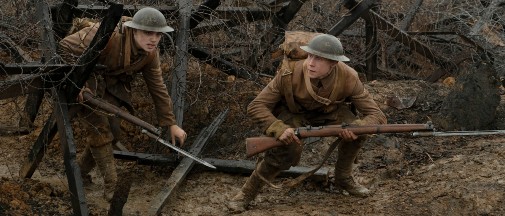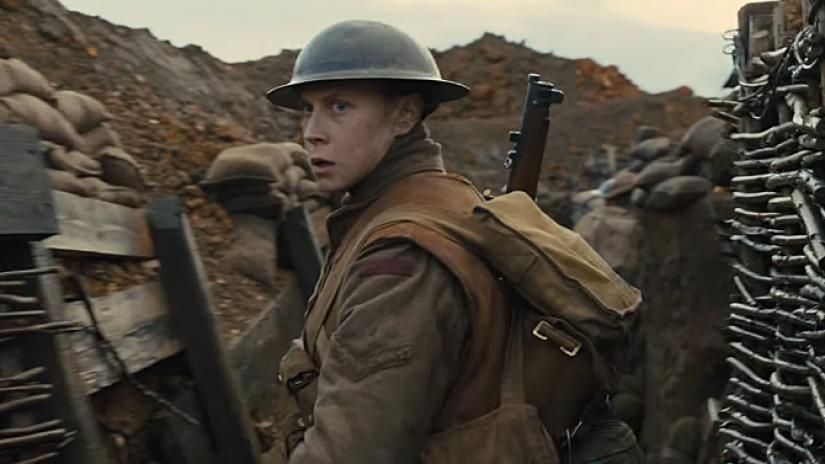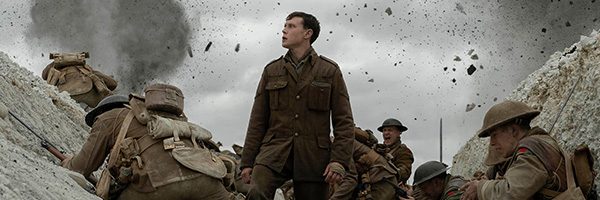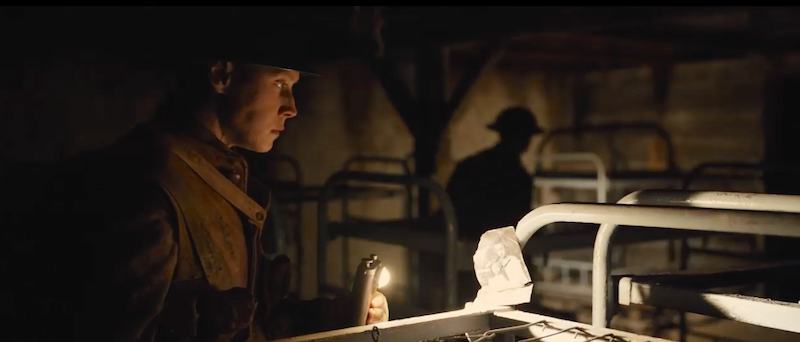The Beautiful Dryness of "1917"
 Thursday, February 6, 2020 at 3:00PM
Thursday, February 6, 2020 at 3:00PM by Lynn Lee
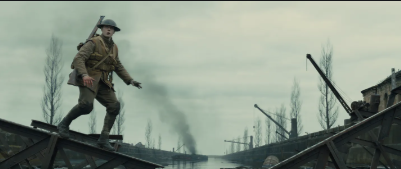
[This article contains spoilers]
“One of the best war films ever made.”
That’s not a critic’s blurb – that’s how my father described 1917 to me the other day. The fact that he and my mother loved the film didn’t surprise me, given that I was the one who recommended it to them. What did surprise me was how much they loved it. It’s not that they haven’t seen many war movies – to the contrary, my childhood and adolescence included a healthy dose of them, from early black and white greats like Grand Illusion to sweeping Hollywood epics like Lawrence of Arabia. Over the years my parents have continued to add films as varied as Das Boot, Gallipoli, Saving Private Ryan, and Master and Commander to their favorites.
So what was it about 1917 they deemed worthy to stand with the classics? My dad cited the cinematography, of course, and the vivid realization of the WWI battlefields and trenches, but he also extolled the “delicacy” and “dryness” of the story. And I think he was on to something there...



